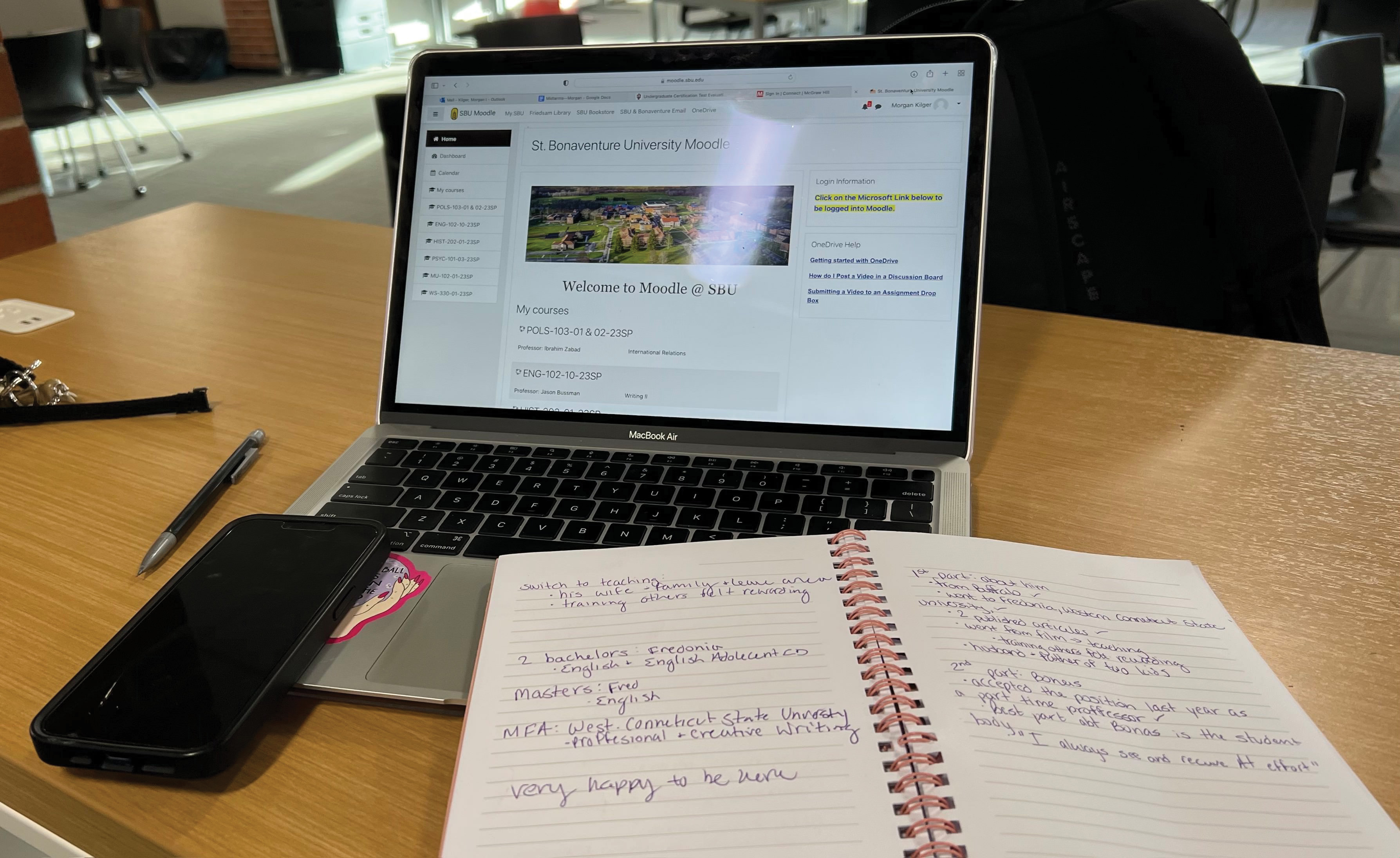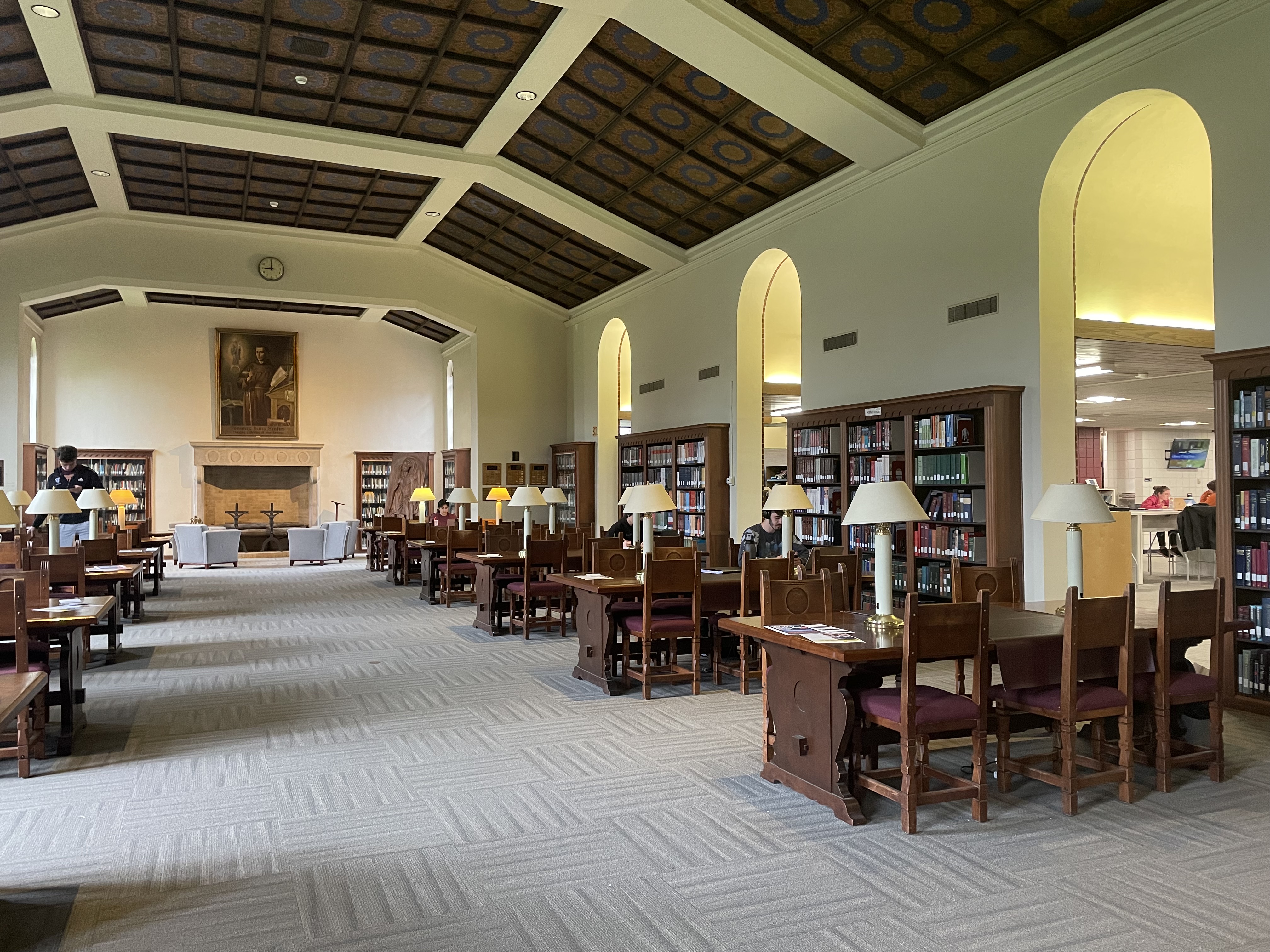To many college students, studying abroad may seem like the experience of a lifetime. Bonaventure offers study abroad programs in over 30 countries, during both fall and spring semesters and short-term trips during the summer.
But before students decided to burst the “Bona bubble” and spend a semester away, they are faced with months of preparation. The constant stream of emails and deadlines can be a bit overwhelming, so it’s crucial to prepare.
Passports
Probably the most well-known travel document, passports are necessary to enter any country in the world. In the United States, it is crucial that travelers begin correspondence with the United States Postal Service at least six months prior to studying abroad. Updating a passport can take several months, especially if you’ve never applied for one. To update or apply for a passport, you must have USPS-appropriate photos of yourself and your birth certificate, in addition to a cash fee determined by your local post office.
Although it’s imperative to keep your passport protected at all times, it is also important to have it on hand when necessary. In many traveling situations, your passport might be your only valid identification, as many international cities will not accept an American driver’s license. If your passport is lost or stolen, contact your local United States embassy as soon as possible.
Visa
Unlike passports, the need for traveler’s visas depends on the laws designated by a specific nation. If you’re planning on staying for an extended period of time, it would be wise to research the different types of visas. The United States alone has over 130 types of visas, so it would be best to get into contact with a travel guide or study abroad director to determine your best option individually.
Transportation
Whether it’s finding a train station or a plane ticket, finding a method of transportation is crucial. Purchasing flights online can seem daunting, but knowing what to look for can help you skim through options with ease. If you are worried about reacting to jet lag, it’s helpful to book an overnight flight. Overnight flights will ensure that you are more likely to fall asleep. If you are certain of your return date, booking two-way tickets will help cut costs. If you live close to the Canadian border, consider flying from one of their major airports as it cuts the price significantly.
Medical Preparation
Always being prepared is impossible, especially in a foreign country, but medical emergencies should always be taken into consideration. Contact your doctors and other specialists to inform them of your departure. Check in with the Center for Disease Control and Prevention. The CDC will be able to alert you about any health crisis in your area of travel, and also list vaccinations required for entry. If you have medication or any medical devices, make sure you refill and replace everything. Keep all medication in your carry-on in case of emergencies. When passing through airport security, always make sure prescriptions are kept in labeled bottles.
Call Your Bank
Calling your bank to notify them of your travel plans is important, especially if you plan on using a debit or credit card. Without calling your bank, they might think that the international transactions are the result of fraud, or that your account has been compromised.
It is also important to let your bank know every time you leave the country during your travels and to contact your bank about international fees. Many large banks have worldwide “sister banks” that offer transaction discounts. If you are planning on exchanging currency, you can contact your bank, the American Automobile Association (AAA) or an international airport. If you haven’t traveled abroad before, talk with your study abroad directors about the option of travelers insurance to determine if this is the right option for you.
Research The Area
This is especially important if there will be a language barrier. Knowing your way around the city before you arrive will give you an edge, and help guide you away from tourist traps. Know transportation routes, especially to the local airport and to your school. If you are living in an area with an underground train, downloading map applications on your phone will help you quickly navigate the area. Also look into student discounts and international rates on local transportation payments.
Preparing For Distance
Even while you’re having the time of your life studying abroad, you’ll still need to get in contact with friends and family back home. Whether it’s for emergencies only or to share pictures, you should have a definite plan for contacting others. For everyday messaging, consider buying an international SIM card, or even an inexpensive temporary phone. International plans from American carriers are expensive, and inserting a SIM card into your phone is a fraction of the cost. Use WiFi whenever possible. iPhone users can always use iMessage, and there are countless “free texting” applications available on the App Store or Google Play.
Don’t Sweat The Small Stuff
No matter how prepared you are for leaving the country, there will be a slip-up. Sometimes being on the other side of the world makes the smallest of problems feel like a disaster. Making lists will help you cut down on errors, but it is best to approach any situation with confidence. After spending months away from home, you will learn to see the world from a different lens. Getting out of your comfort zone will be challenging at first, but you will soon realize that “home” is just a state of mind, and with the right mindset, you can find belonging anywhere.
rootcm14@bonaventure.edu








